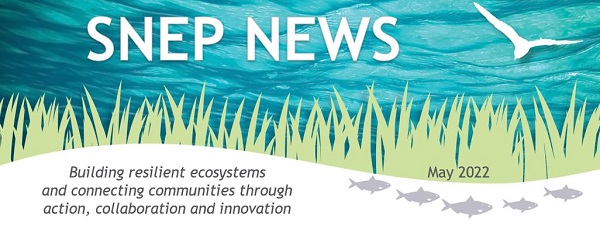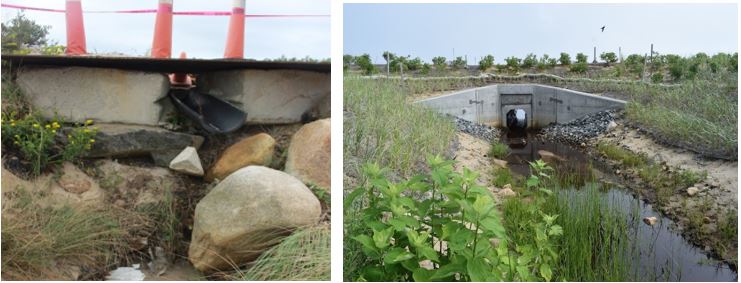Program Updates

Registration is still open for SNEP’s May Virtual Symposium: Science Bringing Solutions: Delivering Environmental Improvement to Southeastern Coastal New England. Attendance is free and open to the public. Register today via our Symposium website
There is still time to submit poster abstracts to the Symposium!
The agenda to the SNEP Symposium is now posted to the Symposium website. SNEP is proud to welcome Jamie Houle of the UNH Stormwater Center as keynote speaker. Jamie will present on a recently completed Stormwater Retrofit Manual – a project supported via the SNEP Network.
SNEP has announced a new Request for Applications.
EPA-SNEP will be allocating up to $2.3 Million to fund the creation of one to two (2) Model Responsible Management Entities and the installation of a series of Innovative and Alternative (I/A) septic systems in both Rhode Island and Massachusetts. EPA is currently accepting applications via Grants.gov. An informational webinar will be offered on May 26, 2022 from 12:30 – 2:00pm. This webinar will be recorded and posted to the SNEP website
Application deadline is June 17, 2022 at 11:59pm.
On March 31, EPA-SNEP hosted a workshop on “Developing an Effective Communications Strategy for Harmful Algal Blooms” to discuss ways to better inform the public on what the presence of HABs means for their communities. Workshop presentations are now available on the SNEP website. A workshop summary will be made available within the next few weeks.
On April 20, the SNEP Steering Committee met to discuss programmatic updates and future direction for BIL funding. Meeting notes are now available on the SNEP website
S. Environmental Protection Agency released its Equity Action Plan Summary in April, 2022. This plan fulfills President Biden’s Executive Order (EO) 13985 directing EPA, along with other federal agencies, to assess whether underserved communities and their members face systemic barriers in accessing benefits and opportunities through the federal government. The Equity Action Plan outlines six priority actions:
Develop a comprehensive framework for considering cumulative impacts in relevant EPA decisions and operationalize that framework in EPA’s programs and activities.
Build the capacity of underserved communities to provide their experience to EPA and implement community-led projects
Develop EPA’s internal capacity to engage underserved communities and implement clear and accountable processes to act based on communities’ input.
Strengthen EPA’s external civil rights compliance program and ensure that civil rights compliance is an agency-wide responsibility
Integrate participatory (community) science into EPA’s research and program implementation.
Make EPA’s procurement and contracting more equitable. Read the EPA Equity Action Plan.
The U.S. Department of Agriculture’s Natural Resources Conservation Service (NRCS) will invest $42.5 million to restore and protect water quality on Cape Cod across twenty-one individual projects; and $33 million across eight projects in Rhode Island.

Aquinnah, MA: In 2019, the Wampanoag Tribe of Gay Head Aquinnah received $456,868 in SNEP funding to implement a series of restoration and resilience projects.
Shown in the images above is the before (left) and after (right) photos of one of these projects, which was the restoration of the failed Lobsterville Culvert.
For more information on this SNEP project, please reference this final project report.
Photo by the Natural Resources Department, Wampanoag Tribe of Gay Head Aquinnah.
